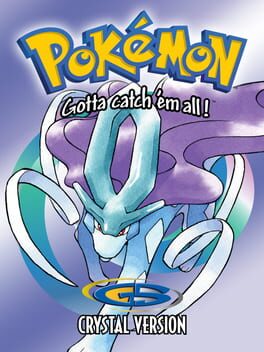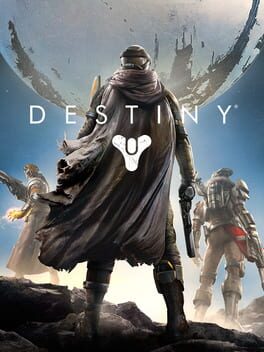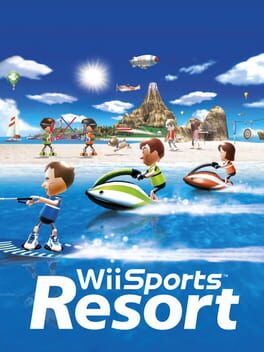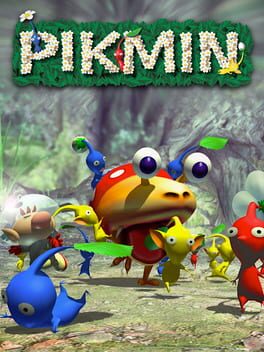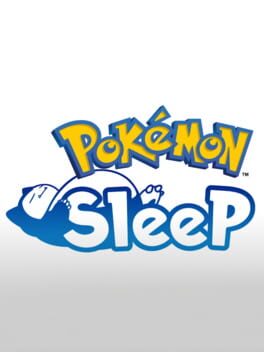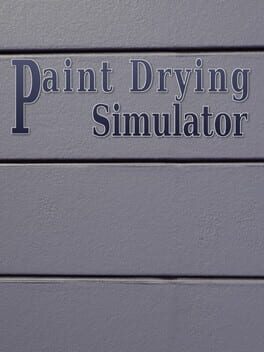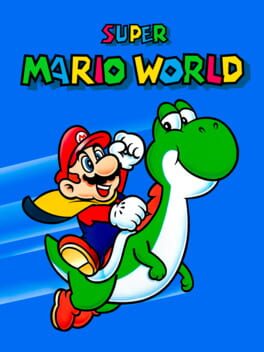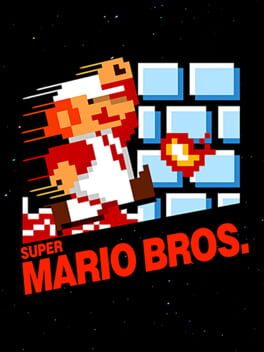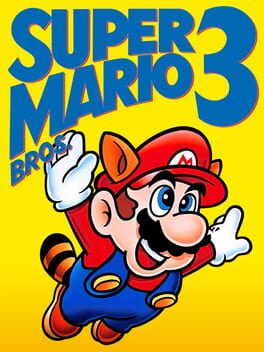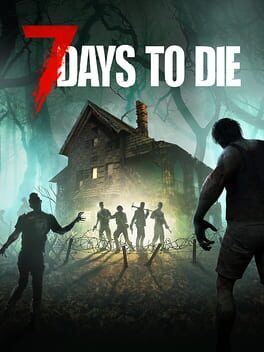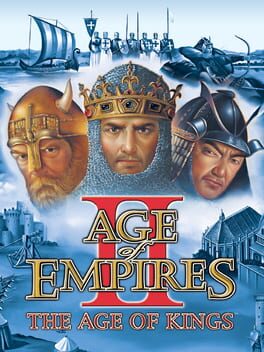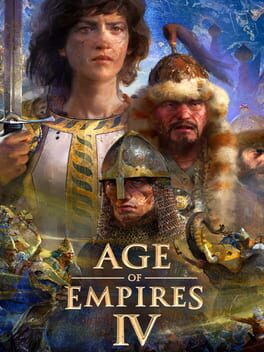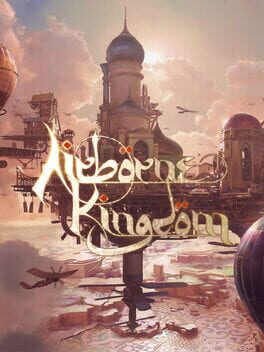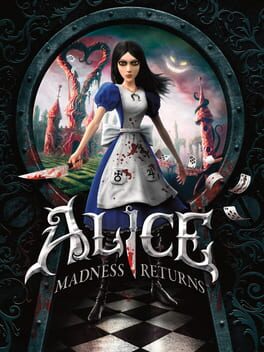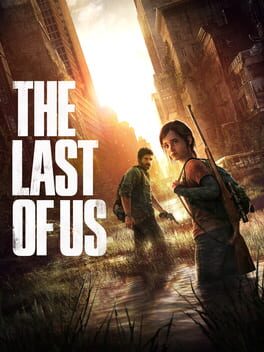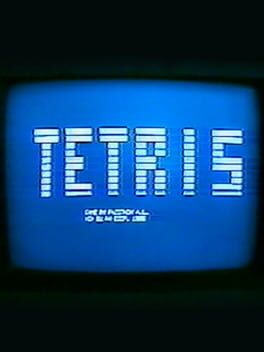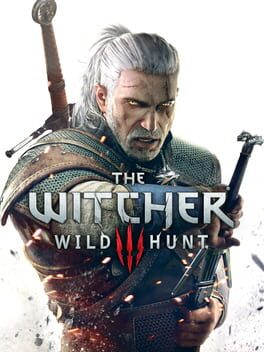8 reviews liked by adrianb
undeniably, there was something lost during the transition from gen 1 to 2. you can even start to see it from red/blue to yellow. designs became less abstract, instead opting to ape the designs shown in the anime. the feeling of a JRPG monster game was traded in favor of eschewing a new genre, something a cross between that and a pet simulator. it's very fascinating for me to go back and see how distinctly unpokemon red/blue was, and gen 2 is really where you start to see a lot of the themes and tone come about.
on some level, i do prefer red/blue to this game. there's a greater "pick up and play" element to it for me, there's a staggering amount of content condensed into a relatively simple experience. something about the game design of red/blue evokes a "do another playthrough" desire out of me; it could be the relative minimalism by series standards or just the fact that it feels so video game-y in a way that pokemon's largely abandoned. charmander isn't a cute little salamander, it's a monster that's meant to grow into something greater than itself. and sure, some of the NPCs in the game do remark about how cute and adorable pokemon like jigglypuff and meowth are, but there's this implied understanding that, to be a superior pokemon trainer, you should be looking at stats and moves, not at designs.
fastforward to gen 2, and you get an almost completely opposite message from the game. there's a greater emphasis on bonding with your pokemon, both in the addition of a friendship statistic and also in the form of friendship evolutions. baby pokemon are added despite serving no advantage in gameplay terms and being relatively useless. much more gimmick pokemon are added that seemingly lack real-world counterparts to add to the world, like shuckle and gligar. in large part, gen 2 is the point in the series when pokemon decided to stop being centered on imitating the real world with a JRPG lens and instead became its own, lived-in universe. pokemon have mythos and lore beyond pokedex entries now! you can breed pokemon and get powerful egg moves onto things, regardless of how sensible it may be (hello chikorita with ancientpower)! gen 2 is when we look at pokemon's world in greater detail instead of abstraction. on the one hand, i appreciate and miss the abstraction of gen 1. on the other, it's undeniable that gen 2's when the pokemon series really kicked into high gear and cultivated its iconography and gameplay systems beyond what many expected of a fad of the year series.
it's worth mentioning that this game does a lot of quality of life improvements as well as bug fixes and move effect retoolings from gen 1 that were sorely needed. i could spend what feels like days listing off everything improved, but it's staggering when you sit down and bullet-point out how much of gen 1 needed to be fixed by its sequels; moreso staggering that it was. it's very easy to go "the jump from gen 1 to gen 2 was big", but it doesn't feel quite as big until you play them both back to back. the art style alone is so different that the games feel as though they're not even related. pokemon red/blue was the blueprint, pokemon GSC was the reinvention.
the largest and probably most damning flaw of the game for me is that a large portion of the gen 2 pokemon are prohibitively difficult to obtain. some are locked away behind trade evolutions, some are only obtainable after beating the elite four, and some are just painfully rare encounters (see: dunsparce, teddiursa, and swarm pokemon like yanma + qwilfish). and literally half the gym leaders only use pokemon from gen 1. you're telling me that you introduced one new ghost type pokemon in misdreavus, and not a single fucking person in morty's gym uses it? and falkner is left by the wayside in only using pidgey and pidgeotto. sure, he's the first gym leader, but you really couldn't have at least given him something at least a little interesting like hoothoot or murkrow?
but i'm nitpicking. this game is considered a hallmark of the series, and, when you consider the context, it's easy to see why. as much fondness as you could have for digimon, you simply must admit that it lacks a pokemon GSC. it lacks a video game that dominated markets and cemented its series as a mainstay of pop culture. for what pokemon has become and what we all wish it could be, there was a time when it felt like it was truly breaking new ground, as though it were mapping uncharted territory. that was exciting. thrilling, even.
on some level, i do prefer red/blue to this game. there's a greater "pick up and play" element to it for me, there's a staggering amount of content condensed into a relatively simple experience. something about the game design of red/blue evokes a "do another playthrough" desire out of me; it could be the relative minimalism by series standards or just the fact that it feels so video game-y in a way that pokemon's largely abandoned. charmander isn't a cute little salamander, it's a monster that's meant to grow into something greater than itself. and sure, some of the NPCs in the game do remark about how cute and adorable pokemon like jigglypuff and meowth are, but there's this implied understanding that, to be a superior pokemon trainer, you should be looking at stats and moves, not at designs.
fastforward to gen 2, and you get an almost completely opposite message from the game. there's a greater emphasis on bonding with your pokemon, both in the addition of a friendship statistic and also in the form of friendship evolutions. baby pokemon are added despite serving no advantage in gameplay terms and being relatively useless. much more gimmick pokemon are added that seemingly lack real-world counterparts to add to the world, like shuckle and gligar. in large part, gen 2 is the point in the series when pokemon decided to stop being centered on imitating the real world with a JRPG lens and instead became its own, lived-in universe. pokemon have mythos and lore beyond pokedex entries now! you can breed pokemon and get powerful egg moves onto things, regardless of how sensible it may be (hello chikorita with ancientpower)! gen 2 is when we look at pokemon's world in greater detail instead of abstraction. on the one hand, i appreciate and miss the abstraction of gen 1. on the other, it's undeniable that gen 2's when the pokemon series really kicked into high gear and cultivated its iconography and gameplay systems beyond what many expected of a fad of the year series.
it's worth mentioning that this game does a lot of quality of life improvements as well as bug fixes and move effect retoolings from gen 1 that were sorely needed. i could spend what feels like days listing off everything improved, but it's staggering when you sit down and bullet-point out how much of gen 1 needed to be fixed by its sequels; moreso staggering that it was. it's very easy to go "the jump from gen 1 to gen 2 was big", but it doesn't feel quite as big until you play them both back to back. the art style alone is so different that the games feel as though they're not even related. pokemon red/blue was the blueprint, pokemon GSC was the reinvention.
the largest and probably most damning flaw of the game for me is that a large portion of the gen 2 pokemon are prohibitively difficult to obtain. some are locked away behind trade evolutions, some are only obtainable after beating the elite four, and some are just painfully rare encounters (see: dunsparce, teddiursa, and swarm pokemon like yanma + qwilfish). and literally half the gym leaders only use pokemon from gen 1. you're telling me that you introduced one new ghost type pokemon in misdreavus, and not a single fucking person in morty's gym uses it? and falkner is left by the wayside in only using pidgey and pidgeotto. sure, he's the first gym leader, but you really couldn't have at least given him something at least a little interesting like hoothoot or murkrow?
but i'm nitpicking. this game is considered a hallmark of the series, and, when you consider the context, it's easy to see why. as much fondness as you could have for digimon, you simply must admit that it lacks a pokemon GSC. it lacks a video game that dominated markets and cemented its series as a mainstay of pop culture. for what pokemon has become and what we all wish it could be, there was a time when it felt like it was truly breaking new ground, as though it were mapping uncharted territory. that was exciting. thrilling, even.
Destiny
2014
How undignified.
Destiny pairs epic posture with perfect gunfeel but possesses not a morsel of respect for the player.
Grinding and farming, levels and loot – it’s all debasement in the end. The fabled Loot Cave has proven the perfect allegory of our debasement. It cannot simply be patched out. Because it’s not something in Destiny. It is Destiny, distilled.
So we remain in the cave. We refuse to leave. We convince ourselves again – this is gaming. The fire of our screen burns bright with colored treasure. It casts so many shadows on our wall. We can’t even imagine the sun.
Destiny pairs epic posture with perfect gunfeel but possesses not a morsel of respect for the player.
Grinding and farming, levels and loot – it’s all debasement in the end. The fabled Loot Cave has proven the perfect allegory of our debasement. It cannot simply be patched out. Because it’s not something in Destiny. It is Destiny, distilled.
So we remain in the cave. We refuse to leave. We convince ourselves again – this is gaming. The fire of our screen burns bright with colored treasure. It casts so many shadows on our wall. We can’t even imagine the sun.
Wii Sports Resort
2009
Pikmin
2001
Chrono Trigger
1995
Its got great pacing, art, and music, but the combat is really shallow with little moment to moment choice, the fixed encounters make exploration a huge chore, and the story and characters are a little too stock to find personality in. It's got heart in a lot of places, but like the most polished, studio-made work, despite being so handcrafted, it's kind of a vapid blockbuster. Not trite, but vapid. You could say it was too many cooks. Too many hands building towards a really general, mass appeal vision.
I often hear this game lauded as the best of both worlds with regards to the creators of Dragon Quest and Final Fantasy coming together, but it would honestly feel like the weakest entry in either series if put side by side to them. I don't like this frame of looking at it.
Dragon quest games use simple plotlines to convey often extremely subtle and sometimes very complex themes. They feel timeless because of that. The combat systems are made from really simply conveyed choices that feel really weighty; even simple attacks feel intentional, and have the ability to perform unexpectedly to lots of random factors like enemy stat variations, class stats, and flat fractional critical rates. Its combat is like a wizardry 2.0. The best dragon quests have a random encounter rate just low enough to make the player think they can get away with peering just around the corner, while dreading every step in case they run into something truly devastating. Every treasure nets a huge boon, but each one may be your last, with penalties for death being very real. Exploration is the method, and adventure is the dream. To reiterate, complex themes, simple plots, simplified combat terms, devestating and exciting blows with real choice that furthers the desire for more exploration and adventure.
Final fantasy has often really complex plots that have simple themes guiding them. They feel personal and grandiose at the same time. The characters are often commentaries on the tropes they wear on their sleeves, with a lot of hidden depth and backstories to chew at for miles. Exploration is there, but it's in favor of highly scripted and exciting setpieces. Like those setpieces, the combat favors theatricality and performance that heightens the player-character relationship, and the product of that relationship guides the player to navigate the often complex character-building systems of those games. The combat then has complex terms and systems although streamlined for a mass audience to operate on a base level, and play the entire game that way if they so choose. Rather than having a combat around survival and risk/reward, between loot/exploration/death, final fantasy combat is about giving the player a language to understand the world and personality of its inhabitants. It is communication serving the themes of the story (DQ does this too, but in very different ways). To reiterate, complex systems made feasible guided by complex characters, in a complex plot guided by simple themes.
Chrono trigger has simple characters, a pretty simple plot, simple themes, and a simple combat system.
You don't have much say over how you build the characters, the combat doesn't serve as a language, its a bit too easy with penalties too light to serve a vehicle for adventure, not to mention most battles playing out the same way, with a generally unchanging player psychology (tactics are simple, rules generally stay the same, even the introduction of magic mostly keeps characters fighting the same way as before). It's just kinda alright. I play it when I want a simple linear game. (But tbh even ff4 is kinda better at that)
I often hear this game lauded as the best of both worlds with regards to the creators of Dragon Quest and Final Fantasy coming together, but it would honestly feel like the weakest entry in either series if put side by side to them. I don't like this frame of looking at it.
Dragon quest games use simple plotlines to convey often extremely subtle and sometimes very complex themes. They feel timeless because of that. The combat systems are made from really simply conveyed choices that feel really weighty; even simple attacks feel intentional, and have the ability to perform unexpectedly to lots of random factors like enemy stat variations, class stats, and flat fractional critical rates. Its combat is like a wizardry 2.0. The best dragon quests have a random encounter rate just low enough to make the player think they can get away with peering just around the corner, while dreading every step in case they run into something truly devastating. Every treasure nets a huge boon, but each one may be your last, with penalties for death being very real. Exploration is the method, and adventure is the dream. To reiterate, complex themes, simple plots, simplified combat terms, devestating and exciting blows with real choice that furthers the desire for more exploration and adventure.
Final fantasy has often really complex plots that have simple themes guiding them. They feel personal and grandiose at the same time. The characters are often commentaries on the tropes they wear on their sleeves, with a lot of hidden depth and backstories to chew at for miles. Exploration is there, but it's in favor of highly scripted and exciting setpieces. Like those setpieces, the combat favors theatricality and performance that heightens the player-character relationship, and the product of that relationship guides the player to navigate the often complex character-building systems of those games. The combat then has complex terms and systems although streamlined for a mass audience to operate on a base level, and play the entire game that way if they so choose. Rather than having a combat around survival and risk/reward, between loot/exploration/death, final fantasy combat is about giving the player a language to understand the world and personality of its inhabitants. It is communication serving the themes of the story (DQ does this too, but in very different ways). To reiterate, complex systems made feasible guided by complex characters, in a complex plot guided by simple themes.
Chrono trigger has simple characters, a pretty simple plot, simple themes, and a simple combat system.
You don't have much say over how you build the characters, the combat doesn't serve as a language, its a bit too easy with penalties too light to serve a vehicle for adventure, not to mention most battles playing out the same way, with a generally unchanging player psychology (tactics are simple, rules generally stay the same, even the introduction of magic mostly keeps characters fighting the same way as before). It's just kinda alright. I play it when I want a simple linear game. (But tbh even ff4 is kinda better at that)
Pokémon Sleep
2023
Final Fantasy VIII
1999
Borges says somewhere that dying in Babylon at the age of thirty-two is as much an aspect of Alexander the Great's character as pride or arrogance. There's a temptation to say that this is a game about that idea, one's inseparability from the events of one's life, life as a single unified moment, and the implications of this idea on connections between individuals. How do we separate Laguna's life from Seifer's, if the former's awkward fencing stance in an acting gig becomes the latter's idea of how to be a man?
If this was what Final Fantasy VIII was about, of course, it wouldn't be a terribly good game. Anyone who's played it knows its merit in the intensity of emotion conveyed in its animation, the efficient pace of its melodrama, and the strength of its soundtrack. Above all, it's a series of visuals: the prerendered backgrounds are the series' best. Each area drips with character and each shot, static or in motion, has a great sense of composition. Cinematography in video games would never really be better.
The strength of the junctioning system is that one can build out a set of tools quickly and without being locked into anything: Squall can transfer his Strength stat to Rinoa as easily as he transfers his sister complex onto her. It allows one to approach combat as a puzzle, like fellow best Final Fantasy game FFXIII, though this is held back by the absence of enemies that can really stand against a planned-out party beyond the superbosses.
The game is at all times conscious that it's opera or ballet, that its strength is in individual scenes, in elegance of form rather than substance. The costuming of the sorceresses nods at this, which is as good a way as any to bring up Adel's design. O, for the planned Laguna content which might have given her screen time.
Most tasteful implementation of a character's fursona into a JRPG, not to mention another character's Geocities page.
If this was what Final Fantasy VIII was about, of course, it wouldn't be a terribly good game. Anyone who's played it knows its merit in the intensity of emotion conveyed in its animation, the efficient pace of its melodrama, and the strength of its soundtrack. Above all, it's a series of visuals: the prerendered backgrounds are the series' best. Each area drips with character and each shot, static or in motion, has a great sense of composition. Cinematography in video games would never really be better.
The strength of the junctioning system is that one can build out a set of tools quickly and without being locked into anything: Squall can transfer his Strength stat to Rinoa as easily as he transfers his sister complex onto her. It allows one to approach combat as a puzzle, like fellow best Final Fantasy game FFXIII, though this is held back by the absence of enemies that can really stand against a planned-out party beyond the superbosses.
The game is at all times conscious that it's opera or ballet, that its strength is in individual scenes, in elegance of form rather than substance. The costuming of the sorceresses nods at this, which is as good a way as any to bring up Adel's design. O, for the planned Laguna content which might have given her screen time.
Most tasteful implementation of a character's fursona into a JRPG, not to mention another character's Geocities page.
